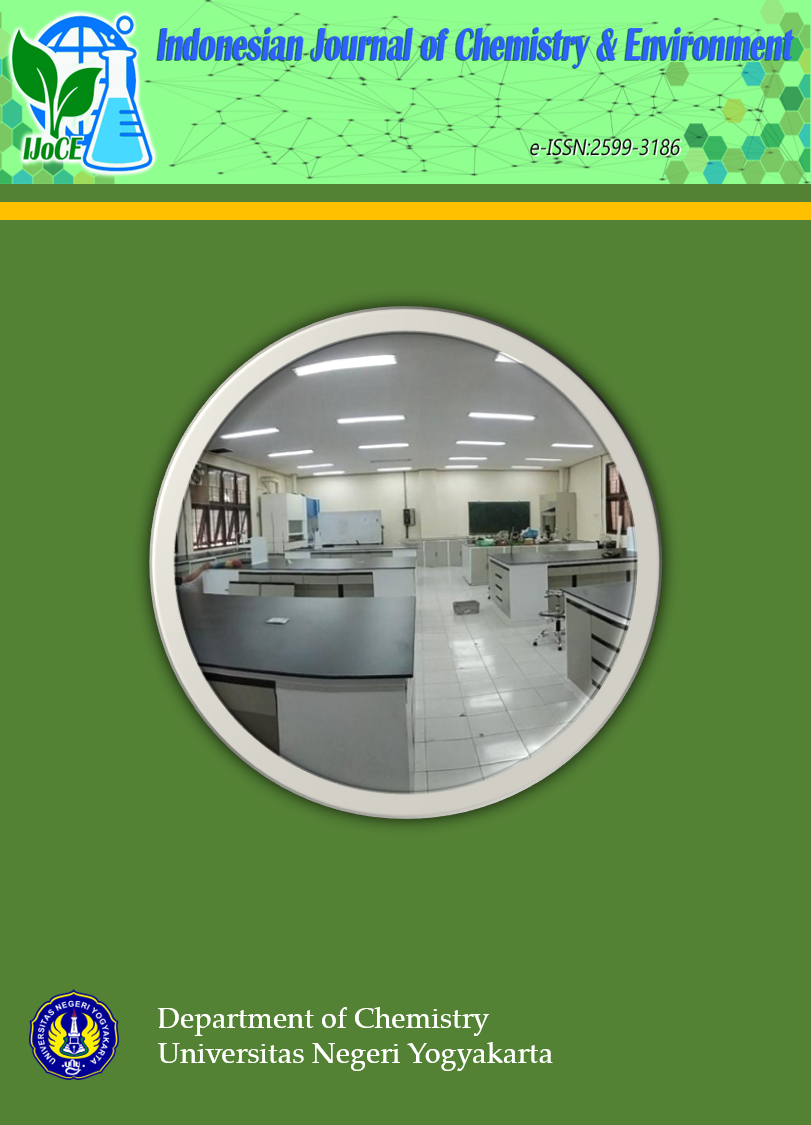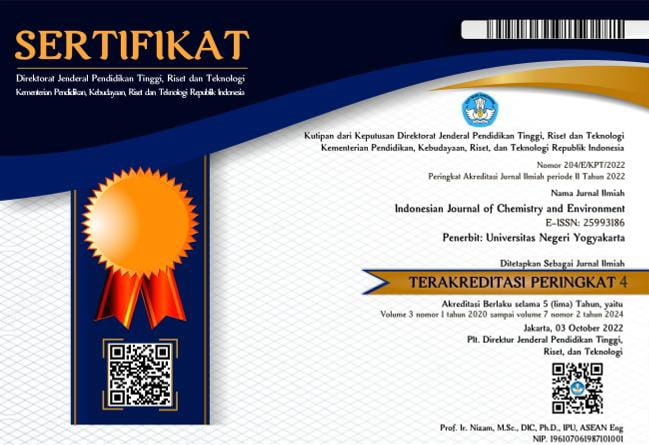Synthesis of Silver Nanoparticles Balaccida Leaf Extract and Its Anti-Bacterial Activity of E. Coli
DOI:
https://doi.org/10.21831/ijoce.v4i2.48402Abstract
The Covid-19 pandemic has become a major problem for public health around the world. One of the ways to prevent Coronavirus is by maintaining hand hygiene using hand sanitizer. The main ingredient of most antiseptics circulating in Indonesia is alcohol which can cause skin irritation. Alcohol substitutes as antiseptics in hand sanitizers are widely available in nature, one of which is the balakacida plant (Chromolaena odorata). The availability of balakacida plants in Indonesia is very abundant as wild plants are often referred to as nuisance plants (weeds). The phytochemical content of balakacida leaves includes saponins, flavonoids, tannins, and alkaloids that have the potential as antibacterial. Balakacida leaf extract has the potential to be used as a source of active ingredients in antiseptic preparations as an alternative to maintain hand hygiene from various parasitic microorganisms. AgNPs are one of the antibacterial and antifungal agents that are effective in inhibiting and killing microorganisms. The optimal variation of CO-SNPs was found at 3 ml of CO-SNPs with an absorption peak of 409 nm and a particle size of 230.1 nm. CO-SNPs produced the best inhibitory value of 12.26 mm on E.coli bacteria.
Downloads
Published
How to Cite
Issue
Section
Citation Check
License
Authors who publish with this journal agree to the following terms:
- Authors retain copyright under a Creative Commons Attribution–ShareAlike License (CC BY SA) that allows others to share: copy, and redistribute the material in any medium or format, Adapt: remix, transform, and build upon the material, for any purpose, even commercially.
- Authors are able to enter into separate, additional contractual arrangements for the non-exclusive distribution of the journal's published version of the work (e.g., post it to an institutional repository or publish it in a book), with an acknowledgement of its initial publication in this journal.
- Authors are permitted and encouraged to post their work online (e.g., in institutional repositories or on their website) prior to and during the submission process, as it can lead to productive exchanges, as well as earlier and greater citation of published work.










